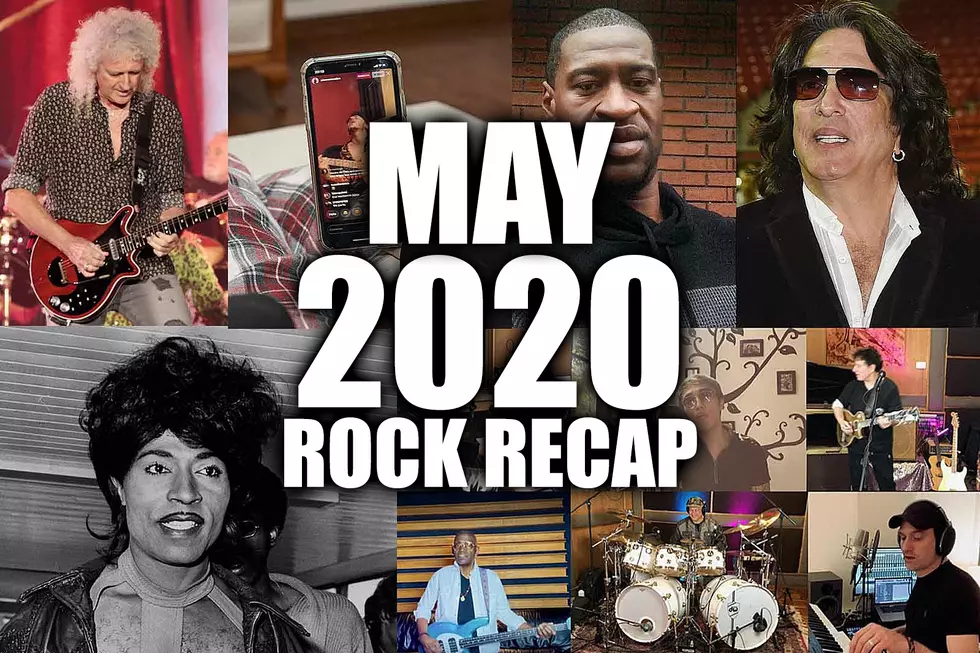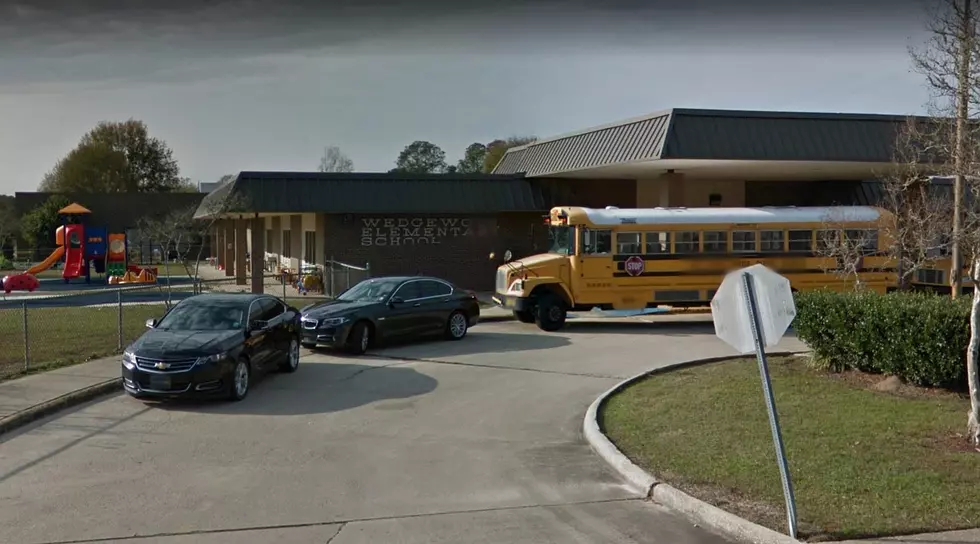
May 2020: Rock Fights COVID-19 With Benefits and Lockdown Songs
The impact the coronavirus would have on the music industry continued to dominate headlines in May 2020.
By the end of the month, nearly every single tour that had been scheduled for 2020 was now postponed until next year or outright canceled. As they had done in March and April, rockers stepped up, either by appearing at benefits, releasing songs to raise money or uploading videos for fans to watch.
In other news, Journey introduced their newest members, the result of a split back in March, and debuted the new lineup with a rendition of "Don't Stop Believin'" at a benefit. Brian May suffered a series of health issues, including a minor heart attack, and one of rock's true originals, Little Richard, died. In the last week of May, the death of George Floyd by the hands of the police brought out cries of outrage and demands for justice from many artists. You can read about all of it below.
Rock Stars Look to Raise Funds and Connect With Fans in COVID-19 Era
As it became more obvious that the coronavirus pandemic wasn't going away, more musicians - including Guns N' Roses, Journey, the Doobie Brothers and Bob Dylan - canceled tour dates. Tony Iommi and Styx acknowledged that self-quarantining forced them to halt projects they'd been working on. But even though they couldn't work, many rockers continued to find ways to connect with their audiences and help those in need. Queen + Adam Lambert recorded "You Are the Champions," dedicating it to healthcare workers, and the band screened the 1992 Freddie Mercury Tribute Concert to raise money for the World Health Organization. Bon Jovi, Billy Joel and Sting appeared on a telethon to help impoverished New Yorkers, and Metallica announced they'd be branching out their philanthropic efforts. Alice Cooper, Pat Benatar and a one-off collective led by Paul Rodgers released songs of hope, while Rod Stewart sent a personal donation to a nurse who had been stricken with the disease. Guns N' Roses streamed highlights from their Not in This Lifetime tour, while Led Zeppelin held a three-day watch party for their reunion concert film, Celebration Day. Finally, pundits across the globe pondered what the music industry could look like in a post-COVID world.
Little Richard Dies
Little Richard, one of the men who helped define rock n' roll, died on May 9 at the age of 87 after reportedly having been very ill for several years. Born Richard Penniman, he rose to stardom in the mid-to-late '50s with a string of hits like "Tutti Frutti," "Good Golly Miss Molly" and "Long Tall Sally," and became a major influence on such notables as Paul McCartney, Elton John, Rod Stewart, Joe Walsh and Lemmy Kilmister. Tributes from the entire musical world came pouring in on social media and, as the NFL season got ready to start in September, ESPN announced that a revamped version of Richard's classic "Rip It Up" would be used as the new theme for Monday Night Football.
Journey Announce New Lineup
A legal battle within Journey led to the ousting of original bassist Ross Valory and classic-era lineup drummer Steve Smith in March. Just two months later, guitarist Neal Schon announced they'd be replaced by former American Idol judge Randy Jackson, who played bass with Journey from 1985-87, and Narada Michael Walden, a veteran producer and songwriter who worked on Schon's solo album Universe. A sixth member, keyboardist and singer Jason Derlatka, was also added to the lineup. The sextet debuted by performing a socially distant version of "Don't Stop Believin'" for a UNICEF fundraiser.
Brian May's Health Scares
Queen guitarist Brian May revealed a number of health problems in May 2020. First, he injured his gluteus maximus as a result of what he called "overenthusiastic gardening." It resulted in a temporary inability to walk and "relentless" pain. But then he learned the pain was actually the result of a compressed sciatic nerve; it became so intense that he said it "took over my personality. I woke up feeling that somehow the pain was me, and I was struggling to get back in my body." A day later, May disclosed that, during the issue with his backside, he suffered a "small heart attack" due to three congested arteries. He opted to have stents placed to ensure proper blood flow rather than endure open-heart surgery. Even though he said it was "not something that did me any harm," May admitted it led to a vision of what his funeral would be like. By September, his heart medication led to a stomach hemorrhage, which the guitarist said the most serious of all his recent health issues. Throughout the ordeal, he repeatedly thanked fans for their messages of support and love, as well as his "wonderful, wonderful surgeon ... I’m so grateful to be alive."
The Rock World Reacts to George Floyd's Death
The Memorial Day death of George Floyd at the hands of the Minneapolis Police Department led to protests throughout the U.S. for the next several weeks. Members of the rock community were among the many who saw the injustice. Paul Stanley tweeted that he was "disgusted and demoralized by the recent videos and incidents of blatant bigotry, racial profiling and what clearly appears to be the cold-blooded murder of a black man," while Sharon Osbourne posted the phone number of the Minneapolis District Attorney's office and instructed people to call and demand charges be pressed. Living Colour's Vernon Reid called it "disheartening, rage inducing. Depressing. It is a time to be honest. It is a time to not be intimidated. It is a time to make your voice heard." David Crosby admitted he was "going to lie here for long time tonight, sad and adrift," and Sammy Hagar pleaded, "Stop the violence. Stop racism. Prejudice. Please."
In Memoriam: 2020 Deaths
More From News Talk 96.5 KPEL










